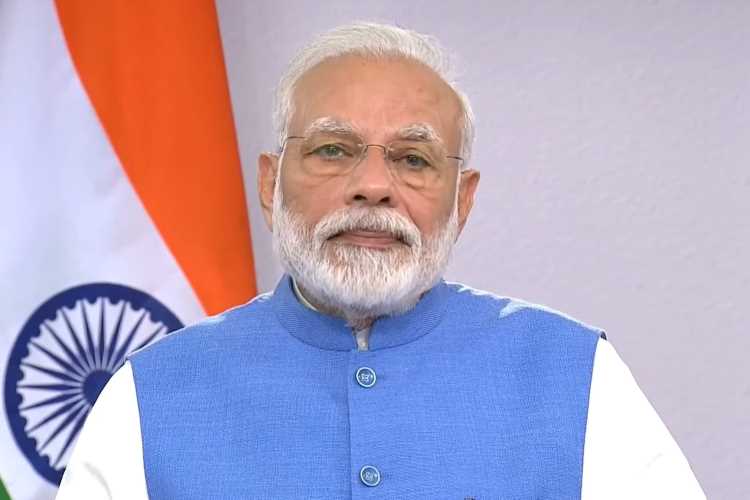
The economic implications of COVID-19 have yet not been examined. The virus has already impacted the tourism, travel, transport and hospitality sectors. There are ancillary units associated with each one of these sectors, especially transport and airlines, that are providing inputs for servicing and operations, and these will also suffer. Consequently, the virus could adversely impact production of aircrafts, jeeps, trucks, locomotives, and related ancillary units. These, and other related industries employ millions of people. High levels of unemployment will hit income levels and the demand for goods and services, kicking off a vicious circle. So, the socio-economic implications have to be computed in terms of financial cost as well as in terms of employment. This slowdown could get transmitted to many other sectors of the economy, multiplying the cost implications.
Coordinated approach key
The Union government has generally been announcing initiatives and taking remedial measures so that the coronavirus does not spread. Some state governments have also swung into action. However, local bodies — many of them bigger than some states – of Ahmedabad, Baroda, Mumbai, Bangalore, Chennai and Kolkata also need to initiate concerted action. The local bodies can offer plans to keep the youth productively engaged. The cost implication of COVID-19, expected to be large, can also be shared with the local bodies to minimise the impact on the economy.
READ: IMF identifies three action areas to mitigate economic fallout of coronavirus outbreak
Policy coordination must extend to public and private sectors for maintaining employment in the economy. This coordination can effectively operate through industry/trade associations. The private sector can liberally deploy CSR funds to maintain the macroeconomic health of the country.
The fiscal policy has been active and now the monetary authority may also have to be more pro-active. A cut in interest rates as well as accommodation to delayed payments by stressed industry and households may have to be considered. The RBI may also have to consider regulatory concessions for some time in order to offer some lending space to financial institutions. The status and role of NBFCs and MFIs may also have to be considered by the RBI.
Support to economic agents
To support productive activities, employment and growth, some focused and laser-beamed fiscal stimulus to travel, tourism, transport and hospitality may be required for next three to six months. The level of income inequalities could widen and freshly unemployed youth could suffer extensively. To sustain the demand and expenditure of labour force, most of which will be unemployed for the next few weeks, especially in unorganized and informal sectors, the government may have to provide financial support. This will also help contain anti-social activities such as thefts and extortion.
READ: Indian economy: The spectre of coronavirus looming large
The stocks with Food Corporation of India could be distributed through fair price shops to ensure the supply of essential commodities at discounted prices. The government could consider extending health/medical insurance, universally, free of cost, to the general population, waiving the subscription for one year. The medical facilities in the private sector, clinics, hospitals and pathological labs can be advised to cooperate with the government for a year.
There is also possibility of providing sectoral support by banks and the financial institutions to the corporate sector. The most vulnerable in critical times are the MSMEs, and there are nearly six crore of them employing 12 crore of people. These MSMEs have links with some NBFCs as well as commercial banks and the stress will be transmitted to the entire economy. There is a need to consider how to really help productivity and continuity of these MSMEs because once there is a halt in production, their payments get delayed. The government could consider a bailout/relief fund for MSMEs and this should be operational on a case by case basis. The MSME relief fund can operate through trade associations, commercial banks, financial institutions, SIDBI, NABARD and the ministry of MSME. The financial support to MSMEs would have to be regular, preferably on a weekly basis, for some time, to sustain the operations and avoid any distress, which will then be transmitted to other sectors such as NBFCs. The support to MSMEs should actively be coordinated between central, state and local governments.
READ: Kerala’s achievements in healthcare can be replicated in other states
Pause of FRBM Act
In emerging countries like India, shutdowns and lockdowns create stress in the private sector, but that stress will quickly transmit itself into the balance sheets of financial institutions and banks. Therefore, there is a need to support banks and financial institutions. The risk management of the banking system and financial institutions will have to be strengthened. The repayment schedule is expected to get delayed, and therefore a line of credit from the RBI to the commercial banks and financial institutions could be considered. This will also help the banks and the financial institutions to continue to grant loans and accommodate the private sector, NBFCs and MSMEs. Therefore, there has to be a pause on the Fiscal Responsibility and Budget Management Act and a liberal fiscal stimulus should be announced. The focus of the stimulus will have to be employment generation, boosting demand, supporting expenditure and reviving economic growth. Similarly, there is a need to pause inflation targeting so that the RBI can focus on growth. Thus, in the next few months, the focus of the RBI and the governments – central, state and local bodies — should only be on employment and growth.
Social implications
Another aspect that needs to be examined is if people are laid off or are working from home, then what is the social impact of this situation. Such high amount of home-bound workforce, some freshly unemployed with no productive engagement can have an adverse social implication. There is a possibility that these idle minds may indulge in antisocial activities. Therefore, it will be important to keep them engaged in some intellectual activities, given that physical/outdoor activities are ruled out. The government must come up with a plan to keep them engaged – it could consider intellectual activities such as essay writing competitions on topics of national interest with large prize money. Such announcements can come from universities, colleges, state governments, local bodies and the central government so that our youth are productively engaged.
READ: Coronavirus outbreak may trigger $1.3 trillion losses
The road ahead
The world, and India, are sailing into uncharted waters. The cost implications are difficult to estimate as the route and amount of destruction is not yet clear. However, one thing is clear: that it is a multi-country phenomenon and therefore our export markets are bound to suffer. Thus, along with travel, tourism, and hospitality, export industry will also suffer for some months. The growth rate of the economy and employment are bound to suffer in a big way. The PM has set up a task force to rapidly assess the situation and initiate remedial measures. The need is to start planning for reconstructing the economy while minimising the destruction during the event.
Dr Charan Sigh is a Delhi-based economist. He is the chief executive of EGROW Foundation, a Noida-based think tank, and former Non Executive Chairman of Punjab & Sind Bank. He has served as RBI Chair professor at the Indian Institute of Management, Bangalore.

